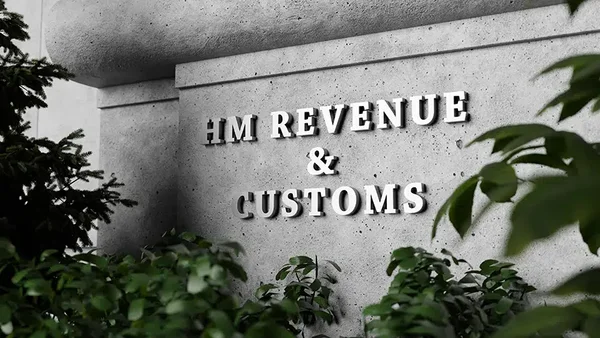let's break this down shall we?
Ever wondered why your bank balance doesn’t always match your business’s financial reports?
The reason might be the accounting method you’re using. Businesses typically choose between the cash basis accounting method and accrual accounting, and the difference can significantly impact how profits and expenses appear.
In this guide, we’ll break down how each method works, their pros and cons, and which one suits your business best.
Whether you’re a sole trader, small business owner, or growing company, understanding these accounting styles is key to making smart financial decisions.
Let’s go!
Accounting Methods – What You Need to Know
Ever wondered why businesses record money differently?
That’s where accounting methods come in! They’re the frameworks businesses use to track and report their finances, and they can seriously impact how your business looks on paper.
There are two main types: cash accounting records money only when it’s received or paid, while accrual accounting records transactions when they happen, even if no cash has changed hands yet.
Choosing the right method matters! Small businesses and sole traders often prefer cash accounting for its simplicity, while larger businesses must use accrual accounting under Generally Accepted Accounting Principles (GAAP).
For a small, straightforward business, cash accounting works well. But if you deal with invoices or plan for growth, accrual accounting gives a clearer financial picture. Nice!

What is Cash Accounting?
Cash accounting is as straightforward as it sounds: you record income when you actually receive the money and log expenses only when you pay them.
No invoices hanging in limbo, no tracking unpaid bills. It’s all about real cash in, real cash out. This method is a lifesaver for small businesses, sole traders, and freelancers because it keeps things simple and easy to manage.
The best part? You always know exactly how much cash you have available, making it great for day-to-day budgeting. But here’s the downside: it doesn’t always reflect the true financial health of your business. If you’ve done work but haven’t been paid yet, it won’t show as income, even though you’re expecting that money.
For many small business owners, cash accounting is a stress-free way to manage finances. However, as your business grows, you might find yourself needing a more detailed financial picture, and that’s where accrual accounting comes in!
Want an even easier way to track your income, expenses, and tax obligations? Our free Pie Tax app makes managing your finances simple!
What is Accrual Accounting?
If cash accounting is like checking your wallet for how much money you have right now, accrual accounting is like looking at your full financial picture, including money that’s owed to you and expenses you haven’t paid yet.
Instead of waiting for cash to hit your bank, you record income when it’s earned (even if unpaid) and expenses when they happen (even if you haven’t paid yet).
This method gives you a more accurate view of your business’s financial health, making it ideal for larger businesses or companies dealing with invoices and credit sales. It also helps with long-term financial planning, since you can see what’s coming in and going out, not just what’s currently in your account.
The downside? It’s more complex and requires careful record-keeping. If you’re not organised, you could find yourself struggling to track who owes you money and what bills you still need to pay.
But if you’re planning to grow, or need to apply for loans or attract investors, accrual accounting is usually the way to go!

Key Differences Between Cash and Accrual Accounting
Not sure whether to go with cash or accrual accounting?
The difference comes down to when you count your income and expenses, and trust us, picking the right method can make managing your business finances a whole lot easier! Let’s break it down in simple terms:
When You Count Income:
Cash Accounting – You only record income when the money actually hits your account.
Accrual Accounting – You count income when you send an invoice, even if you haven’t been paid yet.
When You Count Expenses:
Cash Accounting – You record expenses when you pay for them.
Accrual Accounting – You count expenses as soon as you owe them, even if the money hasn’t left your account.
How Complicated It Is:
Cash A c – Super simple! No unpaid invoices to track, just cash in and cash out.
Accrual Accounting – A bit more work because you have to track what’s owed to you and what you owe.
Who It’s Best For:
Cash Accounting – Freelancers, small businesses, and sole traders who just want to keep things easy.
Accrual Accounting – Growing businesses dealing with invoices, credit sales, and long-term financial planning.
If you like keeping things simple, cash accounting is a breeze. But if you need a fuller picture of your business finances, accrual might be worth the extra effort!
Pros and Cons of Cash Accounting
Thinking about using the cash basis accounting method? It’s one of the simplest ways to manage your business finances, but like anything, it comes with ups and downs. Let’s break it down!
Pros:
Super easy to manage – No complicated tracking, just record cash as it comes in and goes out.
Gives a clear picture of your cash flow – You always know exactly how much money you have.
Perfect for small businesses and sole traders – If you like keeping things simple, this method is a winner.
Cons:
Doesn’t track money owed to you – If you’re waiting on an invoice, it won’t show up until it’s paid.
Might not show the full financial picture – You could be making sales but not actually have cash in hand yet.
Can make tax planning tricky – Since income is only recorded when received, you might end up with a surprise tax bill.
Bottom line? If you want a fuss-free way to manage finances, cash accounting is great. But if you need a bigger picture of your business health, you might want to consider accrual accounting!

Pros and Cons of Accrual Accounting
Thinking about switching to accrual accounting? It’s a game-changer for tracking your business’s financial health, but it does come with a bit more work. Let’s break it down!
Pros:
Gives a more accurate financial picture – You’ll know exactly how much you’ve earned, even if the cash isn’t in your account yet.
Helps with long-term planning – Since it tracks money owed and expenses as they happen, it’s great for forecasting and budgeting.
Essential for bigger businesses – If you deal with invoices, credit sales, or investors, accrual accounting is usually the way to go.
Cons:
A bit more complicated – You need to track receivables and payables, which takes more effort.
Can be tricky for cash flow – Just because you’ve "earned" money doesn’t mean you actually have it yet!
Might require accounting software or an expert – If numbers aren’t your thing, you may need help from a professional.
In a nutshell, accrual accounting is great for growing businesses and long-term planning, but if you prefer a simple, what-you-see-is-what-you-get system, cash accounting might be the better fit!
Which Accounting Method is Right for Your Business?
If you’re a small business owner, freelancer, or sole trader, the cash basis accounting method is the simplest and most manageable option. It’s easy to understand, and you always know exactly how much money is available.
If your business is growing, dealing with invoices, or applying for loans, accrual accounting gives a clearer financial picture and makes long-term planning easier. It takes more effort, but it helps you better track what you’re owed and what you owe.
For many businesses, starting with cash accounting makes sense, but as you scale, you might find yourself needing the accuracy and insights that accrual accounting provides. Either way, knowing the difference helps you make smarter financial decisions!
For official government guidance on accounting methods for businesses, check out HMRC’s guide on business accounting - a helpful read!
Final Thoughts
Whether you go with cash or accrual accounting, choosing the right method impacts how you track profits, expenses, and financial health.
Cash basis accounting method is simple and great for small businesses, while accrual accounting gives a fuller picture of your finances, especially if you deal with invoices and credit sales.
Want to make managing your business finances easier? Our free Pie Tax app simplifies tracking income, expenses, and tax obligations, so you stay in control without the stress.
Easy as pie!











